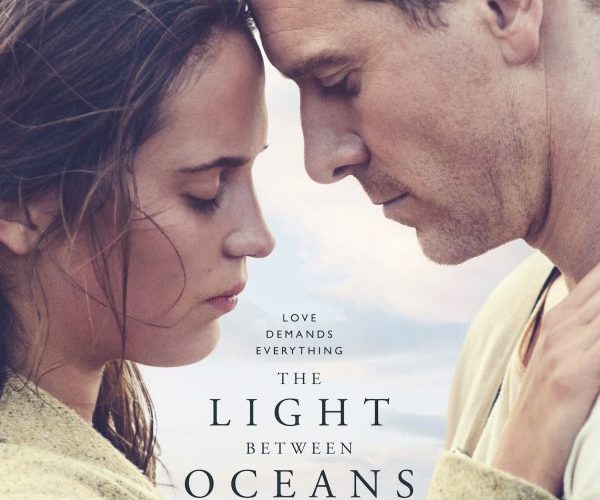Despite being packaged as the kind of period weepy Nicholas Sparks would kick himself for not coming up with first, it’s clear what attracted a director like Derek Cianfrance to The Light Between Oceans. In the breakout drama Blue Valentine and narratively ambitious follow-up The Place Beyond the Pines, he showed a fascination with relationships fractured by sin and the ripples of regret. Cianfrance finds another thematically fitting story in M. L. Stedman’s hit novel and brings a sense of naturalism in the locale, but he could’ve taken more daring liberties in the adaptation process.
After enduring the horrors of World War I, Tom Sherbourne (Michael Fassbender) finds the ideal amount of isolation as lighthouse keeper on Janus Rock, a small island off the western coast of Australia. Despite enjoying this solitude, he quickly falls for Isabel (Alicia Vikander) during his time on the mainland, and, after swift nuptials, they find romantic bliss as the only two souls on the island. This soon comes crashing down when Isabel suffers from a pair of miscarriages, their previous happiness now mutated into a piercing sense of loss. However, a blessing arrives in the form of a child who washes ashore on an wayward dingy, abandoned with her father dead inside the hull.

While delving into further specifics would rob surprise from those who haven’t read the novel, The Light Between Oceans becomes a peculiar kind of kidnapping story in which audiences are asked to empathize with the captors. Thanks to the casting, Cianfrance makes this reasonably easy. Fassbender and Vikander are indeed luminous, quite literally so in a meet-cute in which it feels as if cinematographer Adam Arkapaw has dropped us into heaven, the light blown-out behind Tom’s head as his eyes meet Isabel’s. The intensity on display from both Fassbender and Vikander helps make up for their underwritten characters, each going through actions that can feel telegraphed from a stark distance when we rarely sense a genuine psychology behind their decisions.
As in Cianfrance’s previous films, clearly taking a note from the Cassavetes approach, his cast has seemingly been given room to flesh out their characters on set, the players captured in long takes as they wrestle with the cardinal emotions found in this story. The difference here is how the director often lets these extended sequences play out when it comes to the film’s grandest dramatic sequences, neglecting the more important, formative scenes in between. When their courtship and brief marital bliss cycle through the motions like little more than an attractive slideshow, the emotional connection seems like a gussied-up facade once the narrative’s more substantial turning points come into play. Playing things in the most subdued way is Rachel Weisz, who lends a complex tenderness to her role; but as perspectives switch, the narrative thrust starts to lose focus and her character, Hannah Potts, can feel like an afterthought.

After bringing the setting to life in his previous Fassbender collaboration, Macbeth, Arkapaw does wonders with the Australasian locales. By capturing the ocean in varying degrees of calmness and ferocity, there’s rarely a shot that doesn’t look picturesque — a sense of place aided by the sound design, which features a roaring oceanside overwhelming the dialogue, helping to bolster the moral quandaries as if a divine being is interjecting. Alexandre Desplat’s score is as fittingly stirring as the emotions Cianfrance juggles onscreen, but perhaps the most effective use of music is one of the most heavenly pieces ever written: John Tavener‘s “Funeral Canticle,” used to great effect in Terrence Malick’s The Tree of Life and utilized here in a key moment for Fassbender’s character.
As a morality play that will surely leave the audience contemplating what they might have done in the situation, The Light Between Oceans mostly works. As a layered drama with indelible characters and an intricate narrative, it falls short, giving credence to the more contrived climactic moments while losing specificity. Cianfrance has a proven track record of exploring how guilt can transform when burdened by the weight of time, and that continues with The Light Between Oceans, but it’s never felt more artificial in his hands.
The Light Between Oceans premieres at the Venice International Film Festival and opens wide on September 2.

